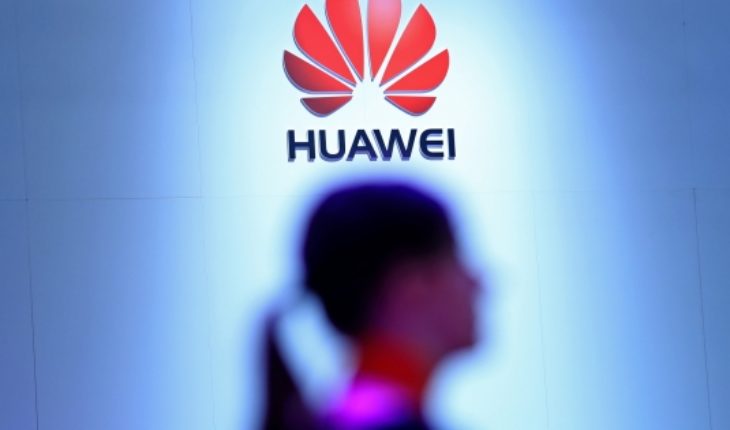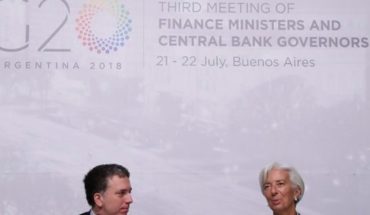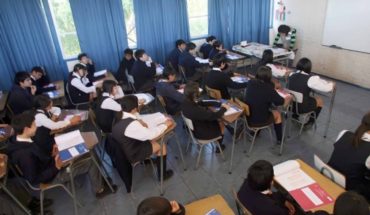The same day that Donald Trump and Xi Jinping began a truce of trade war in Argentina, about 7,000 miles away, Canadian authorities made an arrest that now threatens to worsen the conflict between us. And China.
United States is seeking the extradition of Wanzhou Meng, financial Director of Huawei Technologies Co., after persuading Canada that arrested her on December 1. Canada confirmed that it was in custody shortly when the Globe and Mail reported that she had been arrested in relation to the violation of sanctions against Iran.
China reacted quickly with indignation after the news, calling for both countries to move to release Meng. Later, the Ministry of Foreign Affairs said that it was waiting for details on why it was arrested, and said that the trade talks should continue.
It is difficult to overstate the importance of their arrest in Beijing: Meng is the daughter of the founder of Huawei, a national champion at the forefront of the efforts of Xi to make China self-sufficient in strategic technologies. While United States routinely ask the allies that it extradite traffickers, arms dealers and other criminals, arresting an important Chinese Executive as this is rare, if not unprecedented.
“The time and the way to do this is shocking,” said Andrew Gilholm, director of Control Risks Group in North Asia analysis, by phone. “It is not common to the OMG phrase appear in our internal discussions of email.”
At this time, it is not clear what role played Trump in the arrest of Meng, or if it will intervene at some point. American leaders have spent the last days trying to convince the world and skeptical investors of capital, that China has accepted significant concessions, including the reduction or elimination of tariffs on American automobiles. Shares fell in Asia on Thursday.
Read more about the arrest of Huawei: China, outraged by the arrest of the Chief Financial Officer of Huawei in Canada in the United States. Ask how the arrest of Huawei extends concerned history with the United States.: QuickTake Asia Tech Rout deepens as the trade truce is at risk with the arrest of Huawei
analysts said that it is more likely that the case proceed by s eparado of the trade talks as part of efforts to Trump by intensifying prosecutions against Chinese companies that made economic espionage and violating sanctions. In October, the United States said that Belgium extradited an intelligence official Chinese accused of stealing trade secrets from U.S. companies, an unprecedented event.
Either way, it is almost certain that China sees the arrest of Meng as an important escalation of the trade war that will promote fears of a broader cold war between the world’s largest economies. As part of the trade negotiations, Trump has insisted that China stop providing Government support to strategic sectors, such as artificial intelligence and robotics, as part of its “Made in 2025 China” policy.
“New game” “it will definitely complicate the negotiations and can you believe that this was done to increase the pressure during this period of 90 days,” said Dennis Wilder, former senior CIA China and senior director for Asia on the National Security Council under the President George. W. Arbusto.
“This is sending a signal that there is a new game,” said Wilder on the recent arrests in the United States. “They are trying to deter the Chinese espionage and make it clear that there are real consequences.”
Perhaps no company better incarnate the perceived commercial threat to Huawei. It has surpassed Apple Inc. on shipments of smartphones and aims to surpass Samsung Electronics Co. at the time, pointing to $102,2 million record sales this year, more than Boeing Co.. You are looking for leadership in fifth generation wireless networks and prepares to confront some. America’s largest chip manufacturers.
Therefore, that Trump administration invoked his name to block a merger of Qualcomm Inc-Broadcom Inc., which would have been the largest agreement to date, saying that it would deliver the leadership of 5 G to China. Since then, to Huawei it has prevented from selling their equipment in Australia and New Zealand, was frozen by a Korean contract and faces competition led by United States even in Papua New Guinea.
The last action of the United States against Huawei may be even more significant. While the company has made progress in the development of its own microchips, still depends on the U.S. teams to make their smart phones and network equipment. ZTE Corp., another Chinese technology company, nearly collapsed because of the U.S. sanctions. For violating the Iran sanctions until Trump rescue it as a result of a request for Xi.
The ZTE case showed China’s leaders they needed to become independent from the United States when it comes to critical technologies such as semiconductor and network infrastructure, according to Graham Webster, editor DigiChina Coordinator at the think tank New America with Headquarters in Washington.
“What makes that Huawei is important is that it is a leader in the development of technologies that will make China less dependent on American or European suppliers,” said. “Go through the search for the extradition of a Senior Executive to Huawei is a movement of the Government of the United States, whether it’s coordinated or not.”
Some analysts in China, shows that the U.S. national security apparatus. He is not interested in a deal, regardless of what you think Trump.
“Its aim is to dissociate itself with China,” said Wang Yong, Professor at the school of international studies at Peking University. “Negotiations are the desire to Trump and Wall Street.”
translated from Spanish: Arrest of heir to Huawei threatens the commercial truce between Trump and Xi
December 6, 2018 |





